- Home
- Alison Weir
Arthur- Prince of the Roses Page 2
Arthur- Prince of the Roses Read online
Page 2
The person he loved best – although he hated to admit it even to himself, because he knew he should love God best and then his parents and then his siblings, even Harry, although that really was asking too much – was Lady Darcy, who ran his household. She had been with him from birth and he had overheard her mention that, years before, she had had charge of another prince and had given such satisfaction that the Queen had appointed her to look after her son.
Arthur felt safe in his nursery, where the ubiquitous roses rambled everywhere; he loved to loll on the crimson damask cushions reading or play with his model soldiers on the rich turkey carpets as his servants bustled around setting the table for meals or washing his linen in large pewter basins. And there, a constant presence, presiding capably over all, was Lady Darcy. Always she was deferential to him, yet she would also let him cuddle up to her motherly bosom when he needed it and she had an endless fund of the stories he loved. Yet there was one she would never tell.
‘I want to hear about the prince you looked after before me!’ he often demanded, but always she would shake her head.
‘Ask the King your father,’ she said, and changed the subject.
One day, when he had won praise for his lessons and was feeling bold, Arthur did ask the King.
‘Sir, who was the prince Lady Darcy looked after before me?’
Father looked puzzled for a moment, then his angular face hardened.
‘It was your uncle, the late King Edward.’
‘But he was my grandfather.’
‘No, Arthur, that was King Edward the Fourth, Mother’s father. Lady Darcy had charge of his son, King Edward the Fifth.’
Arthur had not heard of Edward V. He waited to see what Father would say.
‘He was Mother’s brother.’
‘But what happened to him?’
Father frowned. ‘He died, poor boy, in the Tower. The Usurper had him and his brother murdered.’
Arthur was shocked. He had been taught that the King was the Lord’s Anointed, set apart from mere mortals, appointed by divine right to rule. Truly The Usurper had been wicked to murder a king!
‘How did they die?’ he asked, curiosity triumphing over caution.
Father’s mouth set in the tight line that Arthur knew all too well.
‘There are various stories,’ he said. ‘Only a fool would believe most of them. Now, enough of this! Isn’t it time for your archery practice? And I have my accounts to check.’ Father was always checking his accounts. People laughed about it behind his back. Arthur had laughed himself when he heard that Father’s pet monkey had ripped up an account book and eaten it.
As he took himself off to the butts, he remembered hearing talk of princes in the Tower. It occurred to him then that Father had been evasive because he didn’t know what had happened to them. Maybe they weren’t dead after all but had escaped. Arthur liked to think so.
He was six when his life changed utterly. ‘It is time that you learned how to govern your principality of Wales, my son,’ Father told him. ‘It will teach you how to be a king.’
Arthur was to be sent to live at Ludlow Castle on the Welsh Marches. The prospect of ruling Wales and being almost a king was enthralling. And it would mean he did not have Father watching his every move. But then he learned that Lady Darcy was not to go with him and suddenly he did not want to go to Ludlow at all. He even plucked up the courage to remonstrate with Father.
‘But Arthur, you are too old now to be brought up by women,’ Father said. ‘Besides, Lady Darcy is going to Eltham to look after Harry.’
Not to be borne! But, of course, it had to be. Arthur had already learned that, once his mind was made up, Father was immovable and anyway he was the King and had to be obeyed. He could not appeal to Mother after that, though he felt sure she wouldn’t have sent Harry so far away.
Lady Darcy was more understanding. As they watched his household being packed up and his childhood things taken away, she hugged him and told him that he was a big boy now, and Harry needed her more than he did.
‘Be a prince!’ she told him, as they bade farewell. He was trying desperately not to cry and he sensed that she was too.
And so he came to Ludlow, the massive, forbidding castle so far to the west of London that for all he knew it might have been on the moon. For weeks he thought he would die of homesickness – for Lady Darcy, for Mother, for all the loved, familiar places – and even for Father.
But Father, as usual, had been careful and thought of everything. He had appointed Sir Richard Pole to be Arthur’s chamberlain and head his household. Sir Richard turned out to be a merry fellow with a kind face. Arthur liked him at once. Gradually it began to dawn on him that it was a very grown-up thing to be in the company of men rather than being ruled by women in the nursery. And at Ludlow, as Father had explained, he had a very grown-up role, for he was to preside over the Council of the Marches, ruling Wales and the border with England in the King’s name.
He soon discovered the Council was actually very boring. He had thought he would be giving orders himself. But no, he was quickly informed that he was far too young to do that. He was to be a figurehead until he was of an age to rule, which would not be until he turned sixteen. It seemed an interminable time away. For now, he would just sit on the Council in his great chair at the head of the board while Great-Uncle Jasper, who was Earl of Pembroke, and Bishop Alcock of Worcester governed for him with the other lords and gentlemen on the Council. He tried to take an interest in their endless discussions but often he found himself fighting off sleep.
However, he liked Great-Uncle Jasper very much. Great-Uncle’s life had been full of soldiering and adventures and he had helped Father to become King. Arthur loved to hear his colourful stories of battles, escapes and secret plots: many a time they sat late after dinner as Jasper whiled away the evening with his riveting tales.
There were also young gentlemen on the Council who were eager to make a homesick young boy feel at home. Arthur’s cousin, Maurice St John, was always kind to him; he, Anthony Willoughby and Gruffydd ap Rhys became his close friends.
Most of Arthur’s time was spent with his tutor and chaplain, Master Rede. Master Rede had been headmaster of a famous school called Winchester College and made learning seem effortless. This was a great comfort to Arthur, who had heard of boys being beaten regularly for not knowing their lessons. For him, learning was the one place he could excel. He had never been strong. He did not know why he was not like other boys, only that he had to work hard to do things they found easy, such as wrestling or swordsmanship or running. It bothered him immensely because the living embodiment of the union of Lancaster and York must be perfect in every way and the pretence was always kept up that he was. He had always felt that he was not meeting Father’s expectations, even though Father prized him as his heir. Gradually his homesickness was overtaken by his busy life at Ludlow. Lessons, Council meetings, the sports and martial exercises that so drained him and playing host to visiting worthies filled his time. Lady Darcy’s place was filled by two ladies who took it upon themselves to mother Arthur: his cousin Margaret, the wife of Sir Richard Pole, and his Great-Aunt Katherine, Jasper’s wife. Both were kind to him and he could talk to them in a way he would never have talked to the men around him. These kinswomen understood his uncertainties, his frailty and the isolation imposed by his rank and they tried to help.
He was not an exile. Whenever his presence was required, he made the long journey to court and back and every time he marvelled at how life there was going on without him. Margaret and Harry were growing up and Harry was smugly basking in their mother’s attention. Mother was always delighted to see Arthur and interested to hear all about his life at Ludlow, but it was Father who commandeered his time, constantly wanting him at his side when receiving ambassadors and dignitaries, or at ceremonies at court or in the City
of London. It was as if he was the King’s son and Harry was the Queen’s. He always went back to Ludlow with mixed feelings.
The years passed. He was seven, eight. When he was nearly nine his parents made a progress through the kingdom and visited him at Tickenhill Manor, his house near Bewdley, which Father was going to convert into a palace. Arthur preferred Tickenhill to Ludlow, for it was cosier, warmer and more welcoming and he stayed there as often as he was allowed. But he did not want to stay long on this occasion. Great-Uncle Jasper had laid on exciting entertainments at Ludlow and the next morning, before Father and Mother had arisen, Arthur was on his way there to make ready to welcome them and show them where he lived. Then it was down to the great hall for a sumptuous dinner and afterwards to the nearby dry quarry in the town. Today it was doing service as an amphitheatre in which a mystery play would be staged for the royal party’s enjoyment.
Arthur watched his parents take their seats, accepting the crowd’s stares and reverence with grace. He felt that he could always learn more about how to be a king from his father. As the play began, though, he couldn’t resist giving it his full attention. It told the story of the Fall of Man and Arthur laughed out loud as the Serpent, deliciously wicked, ranted and writhed around the stage. Then God came with His thunderbolts – there always had to be thunderbolts in these plays – there was a great roll of thunder from behind the scenery and a shining angel appeared with a drawn sword to banish Adam and Eve – both suitably attired in a modest suit of leaves – from Eden. His laughter was forgotten as they walked slowly off the stage, leaving Arthur feeling chastened and overawed.
As he supped at the castle with his parents afterwards, Father seemed to be preoccupied.
‘The pretender Warbeck may invade any day now,’ he said to Great-Uncle Jasper, whose bushy brows met in a frown.
‘Who is Perkin Warbeck, Sir?’ Arthur asked.
‘He is an arrogant and rather stupid young man who claims that he is Richard of York, the younger of the Princes in the Tower. It is ludicrous, of course.’
Arthur noticed the look of pain that briefly shadowed Mother’s face.
‘But why is he invading?’ he asked.
‘Because some foreign princes are misguided enough to support him!’ Father grimaced. ‘But fear not, my son. We are ready for this imposter: he will be routed.’
‘But how can he claim to be Richard of York?’ Arthur persisted. ‘My uncle is dead.’
‘He says he was spared by the men who murdered my brother, Edward the Fifth,’ Mother said.
‘It’s a tissue of lies,’ Father interrupted. ‘Why spare the younger brother when you have been sent to kill the two people standing in The Usurper’s way?’
Again Mother looked as if she was about to cry. Arthur had the treacherous thought: What if Perkin Warbeck is telling the truth?
He looked at the Queen. How must it feel, having mourned her brothers for years, to be given hope that one of them was alive? And then to realise that, even it were true, it could bring no happiness, because if Richard of York lived, he must be the true King.
Of course, Father must be right. And he would vanquish the pretender. Arthur had no doubt about that. When his parents departed for Shrewsbury the next day, he said farewell to them without a qualm.
The pretender was caught. He publicly confessed that he was not Richard of York, but was really the son of the comptroller of Tournai, and was placed under house arrest at Westminster, carefully watched. Hearing the news from Great-Uncle Jasper, Arthur felt that Father had been incredibly lenient. Had it been up to him, he rather thought he would have had the wretch executed, not only for his treason but also for causing Mother distress.
Arthur was nearly eleven now. He was old enough at last to be betrothed formally to the Spanish Infanta, Catalina, though he had given little thought to his marriage in the past few years. He was summoned to Woodstock Palace near Oxford for the ceremony, for which Father and Mother were coming up from London.
Father was fussing over every detail. Everything had been arranged to impress the Spanish envoys and the noble guests.
‘You’ve grown since I last saw you, my son,’ he said. ‘You’re taller than your age would warrant. That gown looks too short now.’
Arthur looked down at the white satin suit that had been made for him in the spring. He stuck out a leg. It was true, the gown was hanging well above his skinny ankles. Father was already calling for the tailor. Then he complained that the table set for the betrothal feast was not looking suitably festive and servants were sent scurrying into the nearby woods to gather some greenery.
At last, when all was ready, Arthur stood in the great chamber before the Archbishop of Canterbury with the Spanish ambassador, Dr de Puebla, a misshapen little man with swarthy features and a large nose, who was acting as proxy. He felt rather silly when he took the doctor’s hand in his and solemnly betrothed himself to the Infanta, but the King and Queen looked on, beaming. Afterwards Dr de Puebla congratulated him.
‘The Infanta is a lucky young lady! I have never seen a prince of such remarkable beauty and grace,’ he enthused. Arthur was old enough to recognise flattery when he heard it, but it was pleasing to be praised so warmly.
‘I have heard that the Infanta is very beautiful,’ he said courteously. ‘I have been working hard on my Latin so that we can converse easily when she comes to England.’
‘I have heard that your Highness is very accomplished in the Latin tongue,’ the little man said.
‘We hope that the Infanta will come to England before long,’ Father said, almost rubbing his hands in satisfaction at having secured such a prize for his son. ‘We are planning even more splendid celebrations to welcome her!’
It was still a matter of indifference to Arthur whether she came sooner rather than later. In truth, he hoped it was the latter, for Dr Rede had told him, using mostly Latin terms, what marriage entailed (which had left both of them pink with embarrassment) and Arthur knew for a certainty that he was not yet ready for it. The part of him that was to be impressed into service was by no means able to accomplish such an important duty and all he could do was pray that it would not be required to do so for a year or so.
He was four months shy of thirteen when he was married, again by proxy, in a ceremony in the chapel at Tickenhill. The manor house was now a splendid palace surrounded by a vast hunting park and it was here that Arthur was at his happiest. Duty regularly obliged him to be at Ludlow, or sometimes at court, but he was older now and adept at making his will known. These days, when he expressed a wish in a certain tone of voice, people hastened to obey; and so he was often at Tickenhill.
Being a married man made little difference to his life. Dr Rede had retired earlier that year and in his place was the blind friar, Father Andre, but his lessons continued as before. Arthur loved to immerse himself in books. He devoured the ancient classics, history and philosophy. He saw how his friends, Maurice, Anthony and Gruffydd, loved to joust and run at the ring and wrestle, but he had not grown any stronger as he grew older. He still could not sustain the energy for such pursuits. He suspected that the young men thought it unusual for a prince to be studious, reserved and thoughtful. But he needed to excel at something.
Father Andre, at least, was very impressed. ‘Your Highness seems to have committed to memory all the best Latin and Greek authors!’ he marvelled.
That summer they were joined in the schoolroom by Dr Thomas Linacre, who had been Father’s physician and was a great scholar. It was stimulating to hear him speak of his time in Italy and of great modern thinkers such as Erasmus of Rotterdam. Arthur was thrilled when Dr Linacre presented him with his own translation of a Greek text and he found that it was dedicated to himself.
He was not able to forget his marriage completely, however. His tutors ensured that he wrote to the Infanta regularly, in Latin, and
said all the right things.
‘There are certain sentiments that a gentleman should express to his wife,’ Father Andre said – he who would never know what it was to have a wife. ‘It is your duty to love each other. Begin, Most illustrious and most excellent lady, my dearest spouse, I wish you much health, with my hearty commendations . . .’
He continued to dictate as Arthur wrote in his cursive Italian hand. ‘I have read the most sweet letters of Your Highness, from which I have easily perceived your most entire love to me. Truly, these letters, traced by your own hand, have so delighted me that I fancied I beheld Your Highness and conversed with and embraced my dearest wife. I cannot tell you what an earnest desire I feel to see Your Highness . . .’
He wished it all meant something to him, but the prospect of living with the Infanta, pretty though she was said to be, did not move him at all – especially the part of him that, according to the jests his gentlemen made, should be the most moved. In fact it was rarely moved at all. Surely by now something should be happening to him?
He had thought he might speak to Dr Linacre, but when they were face to face he had lost his courage and gabbled that he wanted to ask about a Latin text he had been translating. He didn’t think that Dr Linacre had noticed anything amiss.
Father Andre was still dictating. ‘How vexatious to me is this procrastination about your coming,’ Arthur dutifully wrote. In fact he was heartily relieved that there had been endless delays in thrashing out the final arrangements for the Infanta’s departure for England. Father Andre made him write of his ardent love for her, as he sat there wondering what that really meant. ‘I cherish your sweet remembrance night and day. Let your coming to me be hastened, that the love conceived between us and the wished-for joys may reap their proper fruit.’ How that would be achieved he had no idea, he thought despairingly.

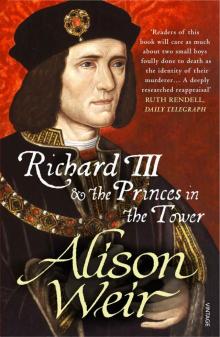 Richard III and the Princes in the Tower
Richard III and the Princes in the Tower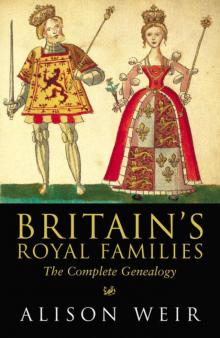 Britain's Royal Families: The Complete Genealogy
Britain's Royal Families: The Complete Genealogy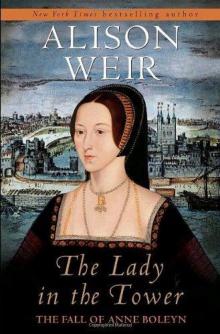 The Lady in the Tower: The Fall of Anne Boleyn
The Lady in the Tower: The Fall of Anne Boleyn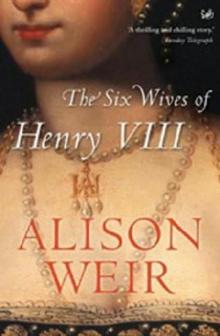 Six Wives of Henry VIII
Six Wives of Henry VIII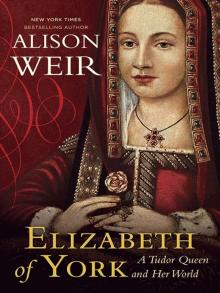 Elizabeth of York: A Tudor Queen and Her World
Elizabeth of York: A Tudor Queen and Her World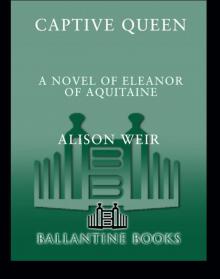 Captive Queen
Captive Queen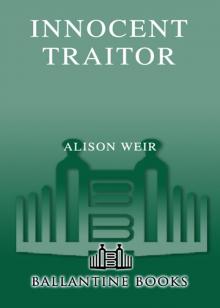 Innocent Traitor
Innocent Traitor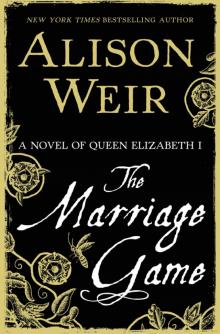 The Marriage Game
The Marriage Game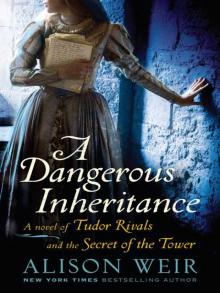 A Dangerous Inheritance
A Dangerous Inheritance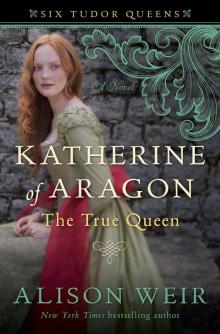 Katherine of Aragón: The True Queen
Katherine of Aragón: The True Queen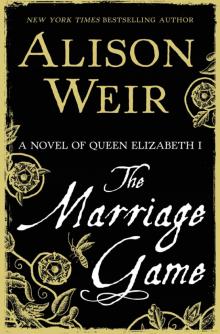 The Marriage Game: A Novel of Queen Elizabeth I
The Marriage Game: A Novel of Queen Elizabeth I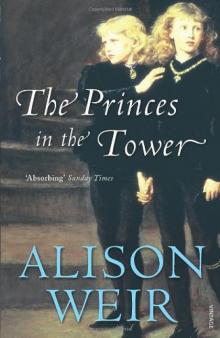 Princes in the Tower
Princes in the Tower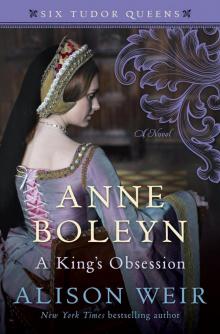 Anne Boleyn: A King's Obsession
Anne Boleyn: A King's Obsession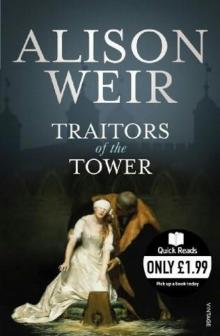 Traitors of the Tower
Traitors of the Tower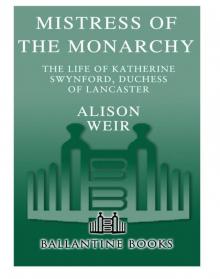 Mistress of the Monarchy: The Life of Katherine Swynford, Duchess of Lancaster
Mistress of the Monarchy: The Life of Katherine Swynford, Duchess of Lancaster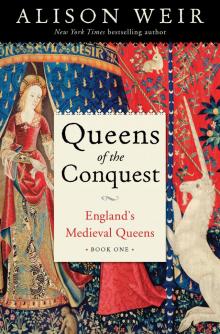 Queens of the Conquest: England’s Medieval Queens
Queens of the Conquest: England’s Medieval Queens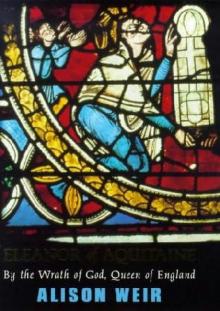 Eleanor of Aquitaine: A Life
Eleanor of Aquitaine: A Life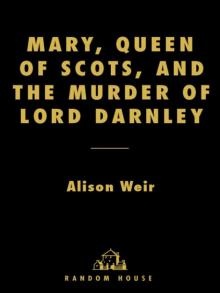 Mary, Queen of Scots, and the Murder of Lord Darnley
Mary, Queen of Scots, and the Murder of Lord Darnley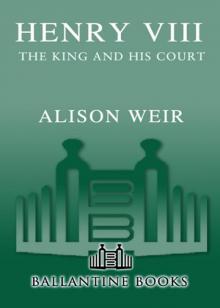 Henry VIII: The King and His Court
Henry VIII: The King and His Court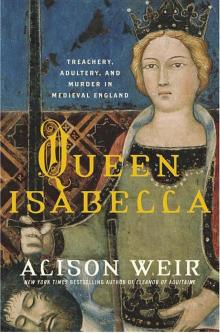 Queen Isabella: Treachery, Adultery, and Murder in Medieval England
Queen Isabella: Treachery, Adultery, and Murder in Medieval England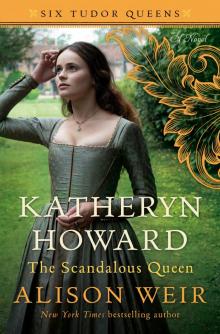 Katheryn Howard, the Scandalous Queen
Katheryn Howard, the Scandalous Queen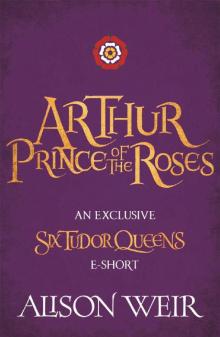 Arthur- Prince of the Roses
Arthur- Prince of the Roses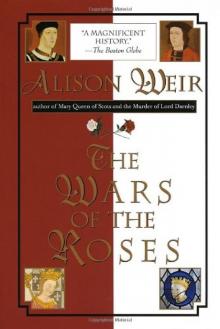 The Wars of the Roses
The Wars of the Roses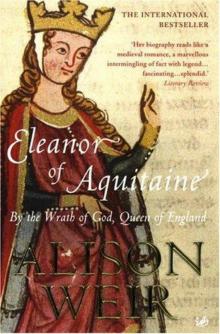 Eleanor of Aquitaine: By the Wrath of God, Queen of England
Eleanor of Aquitaine: By the Wrath of God, Queen of England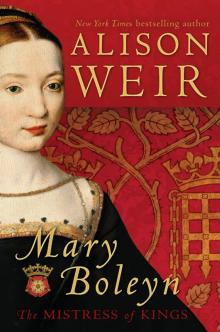 Mary Boleyn: The Great and Infamous Whore
Mary Boleyn: The Great and Infamous Whore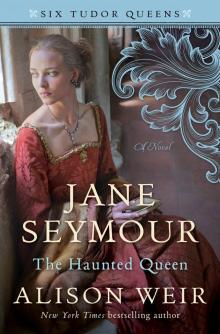 Jane Seymour: The Haunted Queen
Jane Seymour: The Haunted Queen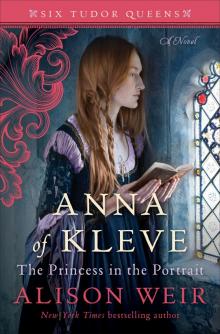 Anna of Kleve, the Princess in the Portrait
Anna of Kleve, the Princess in the Portrait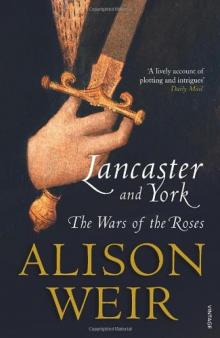 Lancaster and York: The Wars of the Roses
Lancaster and York: The Wars of the Roses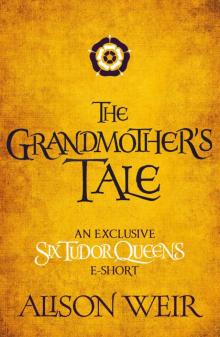 The Grandmother's Tale
The Grandmother's Tale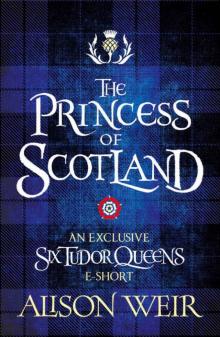 The Princess of Scotland (Six Tudor Queens #5.5)
The Princess of Scotland (Six Tudor Queens #5.5)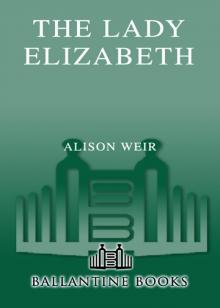 The Lady Elizabeth
The Lady Elizabeth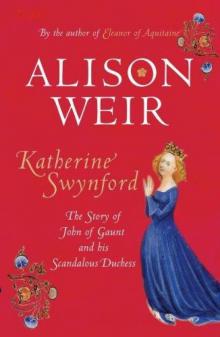 Katherine Swynford: The Story of John of Gaunt and His Scandalous Duchess
Katherine Swynford: The Story of John of Gaunt and His Scandalous Duchess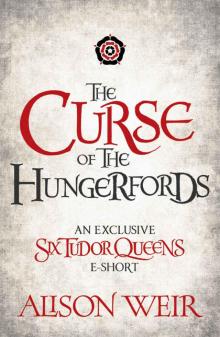 The Curse of the Hungerfords
The Curse of the Hungerfords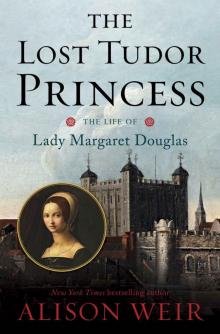 The Lost Tudor Princess: The Life of Lady Margaret Douglas
The Lost Tudor Princess: The Life of Lady Margaret Douglas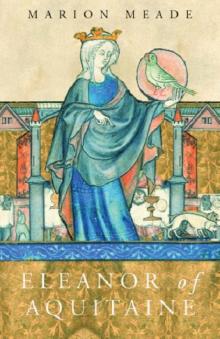 Eleanor of Aquitaine
Eleanor of Aquitaine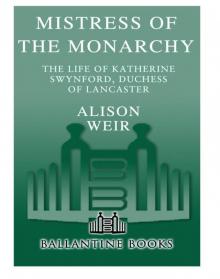 Mistress of the Monarchy
Mistress of the Monarchy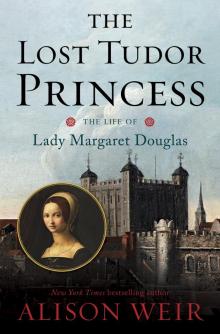 The Lost Tudor Princess
The Lost Tudor Princess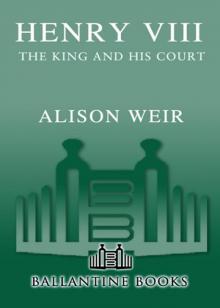 Henry VIII
Henry VIII Anne Boleyn, a King's Obsession
Anne Boleyn, a King's Obsession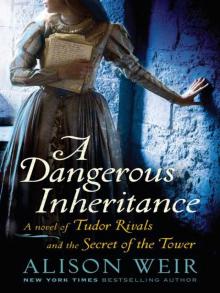 A Dangerous Inheritance: A Novel of Tudor Rivals and the Secret of the Tower
A Dangerous Inheritance: A Novel of Tudor Rivals and the Secret of the Tower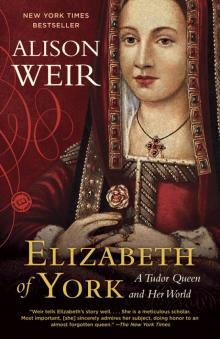 Elizabeth of York
Elizabeth of York Katherine of Aragon, the True Queen
Katherine of Aragon, the True Queen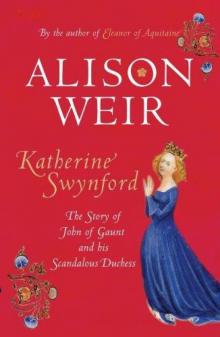 Katherine Swynford
Katherine Swynford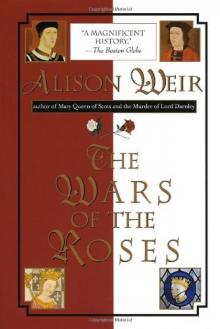 Wars of the Roses
Wars of the Roses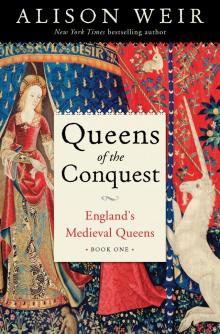 Queens of the Conquest
Queens of the Conquest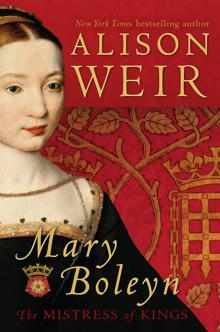 Mary Boleyn
Mary Boleyn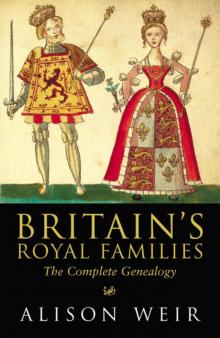 Britain's Royal Families
Britain's Royal Families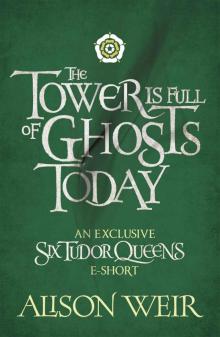 The Tower Is Full of Ghosts Today
The Tower Is Full of Ghosts Today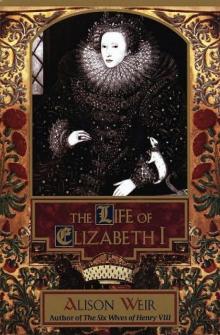 Life of Elizabeth I
Life of Elizabeth I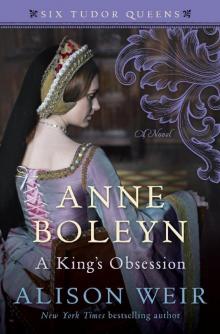 Anne Boleyn A King's Obssession
Anne Boleyn A King's Obssession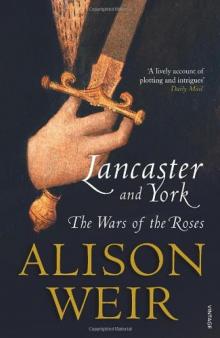 Lancaster and York
Lancaster and York Jane Seymour, the Haunted Queen
Jane Seymour, the Haunted Queen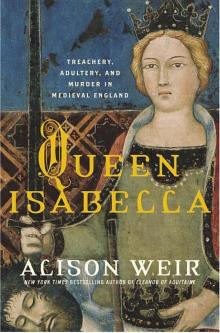 Queen Isabella
Queen Isabella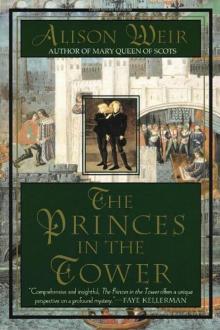 The princes in the tower
The princes in the tower